In celebration of Forward Music Group’s ten year anniversary, we take a look back at the label’s first ten releases.
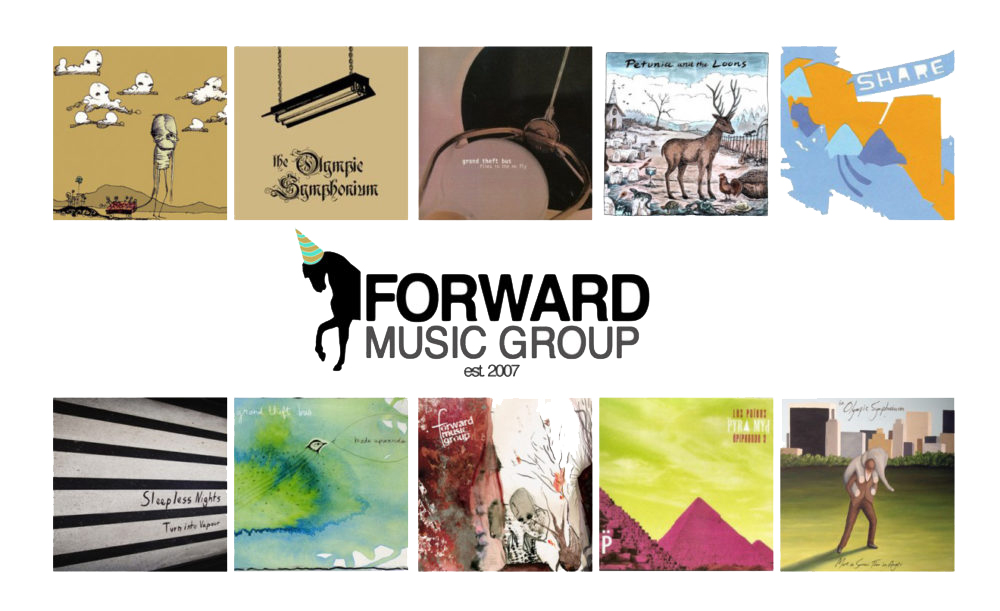
Matt Carter
Last month Halifax based Forward Music Group announced the first in a series of anniversary performances to commemorate the label’s first ten years. These shows will feature The Olympic Symphonium and Share each performing an important release from their early catalogues. The Olympic Symphonium’s debut Chapter 1 (FMG002) and Share’s Pedestrian (FMG005) were among the first releases to bear the Forward name.
On the eve of the label’s 60th release, the debut full-length from Dan Misha Goldman, Grid City Magazine takes a look back at the first ten Forward Music Group releases, back when the label was based in Fredericton and run by small group of friends who shared a passion for discovering all music had to offer from both sides of the stage.

“The whole reason we started Forward was because, in late 2006, a group of us were starting to get pretty serious about trying to make our living with music,” said label co-founder Kyle Cunjak. “Building something together made the most sense, since we were already working in the Fredericton scene and it was blossoming.”
At the time, Cunjak, and friends Zach Atkinson and James Boyle were each prominent members of the city’s music scene playing in bands, promoting shows and booking tours. After Boyle received a grant to help develop his career as a music manager, the three decided to pool their skills and form a label to help support their collective career aspirations.
“I was very interested in how the music business worked. It was basically all that James and I talked about in high school when we were in bands together. We’d be either playing music or talking about the metrics of it.”
“The Olympic Symphonium and The Fussy Part each had finished albums, made for free thanks to the recording school in town,” said Cunjak. “Share and Petunia were recording as well since it was becoming more affordable for bands to record.
“This coincided with James getting a grant from The Province of New Brunswick to study and practice as a music manager, and Zach was starting to make headway as a music promoter in town. Seemed like perfect timing to start a label, right? I was very interested in how the music business worked. It was basically all that James and I talked about in high school when we were in bands together. We’d be either playing music or talking about the metrics of it.”
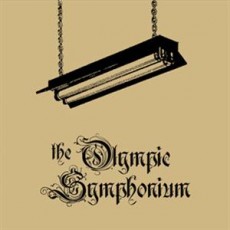
It didn’t take long for the newly formed label to get things moving. Within the first year, Forward Music Group released its first seven albums showcasing a wide range of sonic territory from some of the region’s most active performing musicians.
The label’s first release was the five-track EP, Ben by The Fussy Part, an experimental quintet featuring five musicians who would each play an important role in many groups that came to be associated with FMG. The band’s drummer, Bob Deveau, is a founding member of Grand Theft Bus, a band that would go on to release three albums for the label. Deveau would also go on to work with The Olympic Symphonium on occasion and eventually release a full album of his own music nine years later (see The Hawk) on FMG’s alter ego, Backward Music.
Dennis Goodwin, also a member of Grand Theft Bus, would later record and perform as a member of both Share and The Olympic Symphonium, as would Nick Cobham. Both Cobham and Cunjak would also go on to record and perform with various incarnations of Michael Feuerstack’s solo project, Snailhouse. Stephen Dunn would later reappear as a member of The Slate Pacific and develop a reputation as a highly regarded sonic collaborator on many future projects outside of the Forward fold (see All of Green).
In short, Ben not only served as the label’s introduction but also as an introduction to five highly prolific musicians whose collective body of work would eventually influence a new generation of East Coast musicians. Ben is still considered a classic to many.
Chapter 1, The Olympic Symphonium’s debut release and the second for the label challenges Ben’s loud and sludgy riffs with softer, folk rooted song structures delivered at a volume your parents would appreciate.
In many ways a total contrast to FMG001, Chapter 1 served to demonstrate the label’s broader vision in terms of the music they were willing to release and the diverse vision of Forward’s founding musicians.
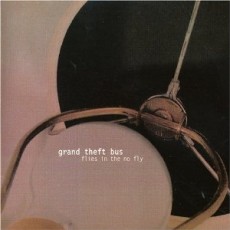
Between January and September 2007, Forward Music Group released a total of five albums. The following three releases, Grand Theft Bus’s Flies in the No Fly (previously released independently by the band), Petunia & The Loon and Share’s Pedestrian would further demonstrate the diverse direction the label was willing to take.
“We had no ad budget and no publicity budget, but everyone toured a lot.”
Up until this point, everything the label put out was in some way connected to the five musicians who played on Ben. On the five releases that would follow, the label would welcome two new groups into the fold releasing music by Sleepless Nights out of Halifax and Moncton’s les Païens. While Sleepless Nights’ up-tempo pop drive fit comfortably alongside Grand Theft Bus and The Fussy Part’s live energy and arrangements, the release of les Païens’ Pyramid, a collection jazz influenced instrumental tracks, represented a slight departure from what people had come to expect from the label.
“Having Sleepless Nights and Païens on the label grew out of touring together,” said Cunjak. “Sleepless Nights were our allies in Halifax and Paiens in Moncton. It made good sense at the time to unite. Even though we were playing different styles of music, we had the same attitudes towards the game and all enjoyed what the others were doing. There was an amazing show in Moncton around 2007 where The Fussy Part, Sleepless Nights, and Païens all played together at The Aberdeen Cultural Centre. It felt like we were family and working together was a natural progression from that night.” (some live footage of that performance available here)

At this point in time, there was always a Forward Music Group act on the road somewhere. As a core of musicians, they were committed to touring and simply playing as much live music as they could.
“That was how we supported those early releases,” said Cunjak. “We had no ad budget and no publicity budget, but everyone toured a lot.”
While confident in their ability to tour and perform, Cunjak and his label mates soon became aware of other important aspects involved in operating a growing record label. Seeking national distribution, going after reviews and press opportunities, and getting their music played on campus and community radio proved to be a challenging undertaking.
“Looking back, it’s hilarious how naive we were about promotion for the first few releases,” said Cunjak. “We didn’t know what a publicist was, but knew about college radio since James and I hosted a show on CHSR for years in high school. We figured we’d send copies to all the Canadian stations and then the reviews and gigs would come rolling in.

“I’ll never forget when, after all the hard work and expense of sending out these packages, we received an email from the station director at an Ontario campus station that completely broke my heart. It was titled ‘Environmentalist of the Year Award’ and cc’d to every other station manager in Canada belittling us for sending three packages in one and having a three page one-sheet. She then sent us a personalized email saying we were killing the planet and ‘were insane’.
“We were young and didn’t know any better,” said Cunjak. “Sorry. We thought that was how it was done according to the Indie Bible or whatever else we could find at the library. There was nobody else in New Brunswick to look up to or ask how it was done. There was barely a MusicNB at that time and we didn’t know anything about the East Coast Music Awards or any other professional music organization. This was the first of a few unfortunate events that I believe stunted our growth early on.”
“We just try to avoid the BS and work as much as we can to create and perform music.”
It was a challenging time. Despite the enormous popularity of some of Forward’s early acts and releases on a regional level, getting their music heard outside of the Atlantic Provinces, in areas where they had no connections or allies proved to be harder than expected.
“When you’re starting out and playing all the time, you don’t even think about the fact there might be gatekeepers in the music industry,” said Cunjak. “It’s a bit discouraging to realize that those people and positions exist, but I guess it’s a necessary part of how [the industry] needs to operate. Why wouldn’t X magazine write about your album? You put your heart and soul into that music and it’s pretty good. But when you’re on the outside, it’s tough to get noticed. This is changing so much now though. Phew.
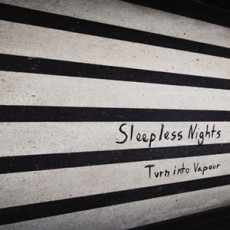
“We just try to avoid the BS and work as much as we can to create and perform music,” he said. “You can’t let the time you to take doing admin outweigh the time you are actually playing music. Practice your craft, advance your art, find your audience, and be realistic.”
The challenge of getting their music in front of the masses was made one step easier thanks to Boyle’s efforts in securing distribution with the now defunct, Sonic Unyon Distribution, after the first few release had gained some momentum.
“James was able to set up distribution around mid-2007,“ said Cunjak. “At some point, Sonic Unyon were being bought out by one of the majors and funneled our stock over to FAB, Canada’s oldest physical distributor, in order to keep our stuff from being absorbed by the machine.
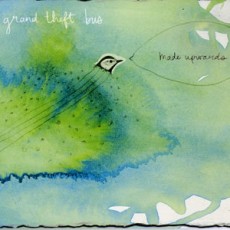
“Physical distribution is a huge and important part of what we do,” he said. “After things fell through with Sonic Unyon and we had Michael Feuerstack’s first release on the way, I was really worried about losing distribution, which might have put us under. After some begging, and since our records were already in their warehouse, FAB agreed to take us on and we’ve had a good thing going since 2012.”
After a mammoth first year of operations that would put most other indie labels to shame, 2008 saw Forward dial back its busy release schedule, as Cunjak, Atkinson and Boyle came to terms with the amount of behind-the-scenes work required to maintain what they created. New albums from Grand Theft Bus and The Olympic Symphonium followed the label’s first compilation release, Forward Music Group 2008 Sampler, a collection of b-sides, rare, live and otherwise obscure recordings from the Forward family, released as a free download (available here).
More In Sorrow Than In Anger, the second album from The Olympic Symphonium was in many ways an declaration of intent from the group and the label itself. The group’s sound was broader, the writing was more focused, and the artwork, design and packaging of the album were all stunning. Chicago-based artist Eric Claridge’s cover art depicting a man with an elephant on his back seemed to somehow represent the inevitable workload that came with forging a life in music, while the painting’s green scenery and clear sky offered a sense of optimism and possibility.
This release would also mark the first of many Forward releases to be made available on vinyl.
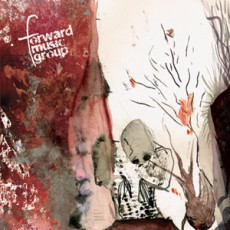
“Vinyl was pretty important to both myself and Nick [Cobham] in The Olympic Symphonium as we are both avid collectors,” said Cunjak. “We always talked about how it was a big goal for us to release something on LP, and it made sense with The Olympic Symphonium since we were touring a lot at the time.
“I’m glad I started releasing vinyl back in 2008 because I’ve learned so much about it since then and it’s now a pretty integral part of what we do.”
With FMG060 set to drop on March 10, 2017, a lot of the early Forward catalogue is now out of print, available only as a digital download, and the physical copies that do exist have become treasured keepsakes to many.
“There are still some physical copies available,” said Cunjak. “Just ask Zach about his basement storage. We have tons of FMG010 LPs & FMG007 CDs left and a handful of some of the others. I actually had to throw out about 25 copies of More In Sorrow LPs because they were moldy or warped.

“We are out of FMG001 but that’s only because Force Fields spent the last few years literally giving away a box of those CDs at every gig, and if there were any left over, we’d destroy them onstage at the end of the set. Ask the MESStival folks about how Nick came dangerously close to injuring the audience throwing dozens of albums like frisbees into the crowd one year.”
“Starting this thing ended up creating a career for each of us.”
Over the past decade a lot has changed in terms of how the label is managed. Co-founders Atkinson and Boyle are no longer directly involved although the friendships that led to the label’s creation remain strong. Cunjak remains committed to managing the label and continues to tour regularly as a member of The David Myles trio and The Olympic Symphonium.
“I still talk to James a lot about business stuff but not as much with Zach, although we still work close together through our involvement in Shivering Songs or if we’re bringing bands through,” said Cunjak. “Zach runs his own booking and promotions agency and manages The Capital Complex in Fredericton and James now runs the Halifax Pop Explosion.”

Many of the bands that played an integral role in the early establishment of the label continue to perform today. Grand Theft Bus remain a New Brunswick music festival favourite and The Olympic Symphonium will release their fifth album of Forward Music Group later this year. Petunia, now based on the west coast, continues to release albums with his band The Vipers and tours regularly. les Païens released a stunning album last year on their own (Carte noire) and Share’s Andrew Sisk (new album released Feb. 24) and Sleepless Nights’ AA Wallace remain active musicians, both releasing new material under their own names.
“Starting this thing ended up creating a career for each of us,” said Cunjak. “It just happens that I ended up taking on Forward as part of my career.”
The Olympic Symphonium + Share | March 3, 2017 | Fredericton Public Library | Doors 6;30 p.m. | Show at 7:00 p.m. | $15.50 | BUY TICKETS
The Olympic Symphonium + Share | March 4, 2017 | Timbre Lounge, Halifax, NS | Doors 6;30 p.m. | Show at 7:00 p.m. | $15.50 | BUY TICKETS
ECMA2017 FMG Revue featuring JOYFULTALK, The Olympic Symphonium, Alan Jeffries, & Loveland | April 26, 2017 | Sanctuary Theatre | Saint John, NB | Ticket Info TBA




